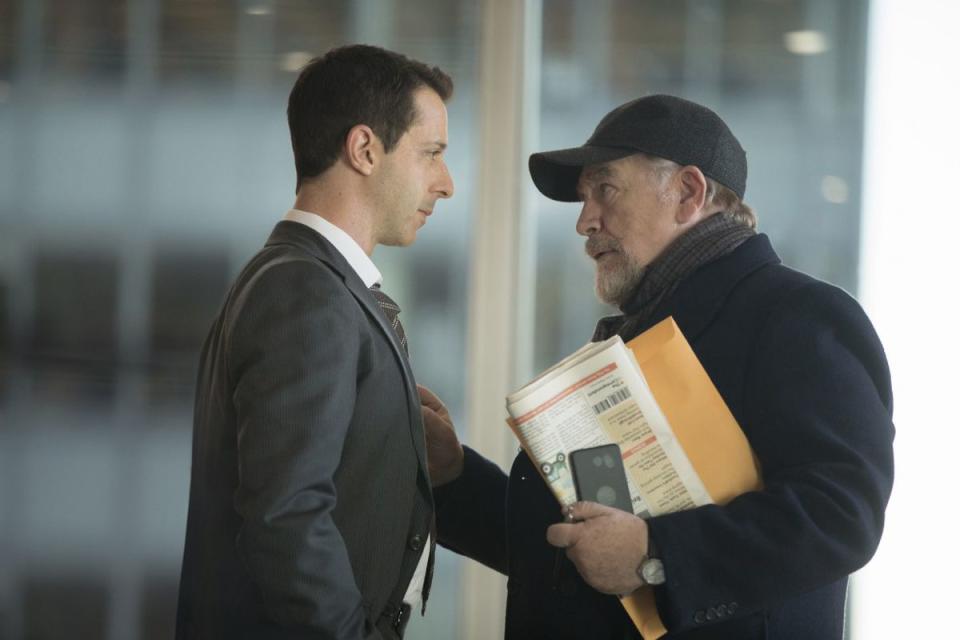On 'Succession', likeable characters, and the scope of a series

Succession’s first episode recently aired for the first time in the UK; in the US, meanwhile, the HBO series has just finished its first season.
What’s been interesting to observe, though, is the narrative that’s built up around Succession. Certainly, the series is well acclaimed – or, at least, it is now. There’s been a noticeable trend of people who watched the pilot episode and gave up, only returning because of the strong word of mouth from those who did continue with the series; in terms of the show’s reception, Succession is the story of a programme that lost a lot of viewers before eventually reclaiming them.
It’s not difficult to understand why someone might not want to continue watching Succession after finishing the first episode. It’s not that it’s a bad episode, exactly; in a lot of ways, it’s quite compelling. However, focusing as it does on a family seemingly comprised entirely of deeply horrible people, Succession isn’t a programme that goes out of its way to endear viewers to its characters – indeed, the exaggerated displays of ostentatious wealth that punctuate the pilot episode are no doubt intended to elicit contempt for the characters. There’s no ‘pat the dog’ moment, with director Adam McKay and writer Jesse Armstrong going to great lengths to ensure that, by the end of the episode, you’re going to hate more or less all of them.
Hardly surprising, then, that it worked, and viewers and critics alike began to drift away from the show. In a world where the likes of Jeff Bezos and Elon Musk are held in great contempt by the zeitgeist, a show that’s about a family who are equally dislikeable for broadly similar reasons (there’s more than a dash of Rupert Murdoch thrown in for good measure), something like Succession is destined to be a hard sell – until it became apparent that the pilot was setting these characters up with the intention of tearing them down, hence the programme attracting back so many of its lost viewers.
Often, when interviewing actors, writers and directors, I’ll ask them how important they think it is to have likeable characters. Almost invariably, they’ll say that it’s much more important to have a character who’s interesting and engaging, someone compelling and perhaps relatable, rather than straightforwardly likeable. All of which is true – but does it matter if, in Succession’s case at least, the characters are so dislikeable that people start to turn off in droves?

This, then, leads to another question: how long should you wait for a television show to get good? How much time do you invest to allow the full scope of a series to unfold, if you’re not actually especially enjoying it at the beginning?
The answer is always going to be personal and idiosyncratic, differing from individual to individual, and more to the point differing between programmes. As a viewer, I’ll always try to give a series at least three episodes before I abandon it, though even then that’s often dependent on how many episodes the series itself has – after a while, there’s a feeling that if I’ve started something, I might as well finish it. This doesn’t always bear out – I gave up on the recent conspiracy thriller Deep State lead by Mark Strong after having watched six of its eight episodes, and never bothered to finish BBC One’s Howards End adaptation starring Hayley Atwell because, despite mostly enjoying it, it took me several days to realise I’d missed the most recent episode. In any case, standards are always going to be different for different people, and “you have to watch a lot of rubbish stuff before you get to the good bits” is a pretty poor caveat to add to any recommendation.
As a critic (of sorts), though, I’m increasingly hesitant to write about a show until I’ve seen the entire series. There’s a fair argument to be made that that shouldn’t be the case – a version of television criticism that loses sight of episodic debate and discussion entirely would be poorer for it – and yet so often I find that you (well, more accurately, I – a better critic probably could) can’t really offer much meaningful commentary on a piece of television after just a few episodes. An obvious recent example is The Resident, a programme I was initially willing to write off as rubbish but watched become something much stranger (albeit still kinda rubbish), but I think more telling is Genius: Picasso. It’s a programme with a solid chance of appearing on my end of year favourites because of how much I enjoyed its deconstruction of the gendered understanding of genius – but a lot of critics dismissed the show, rightly or wrongly, for the early episodes that, though necessary to set up the coming deconstruction, appeared on their own terms to typify the aforementioned gendered view of genius.
Hopefully, if the success of Succession leads to one thing, it’ll be viewers and critics alike being a little more willing to spend time with a programme to let it grow and develop – it’s understandable why, with so much TV and so little time, one might be reluctant, but it can often turn out to be quite rewarding.
Related:
How The Good Fight found clarity in chaos, and answers in absurdity
Westworld, and the possibility of change
Like this article? Hate this article? Why not follow me on twitter for more, or send me a message on facebook to tell me what you thought? You can also find more of my articles for Yahoo here, or check out my blog here.

 Yahoo Movies
Yahoo Movies 

